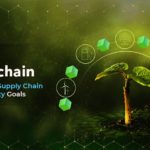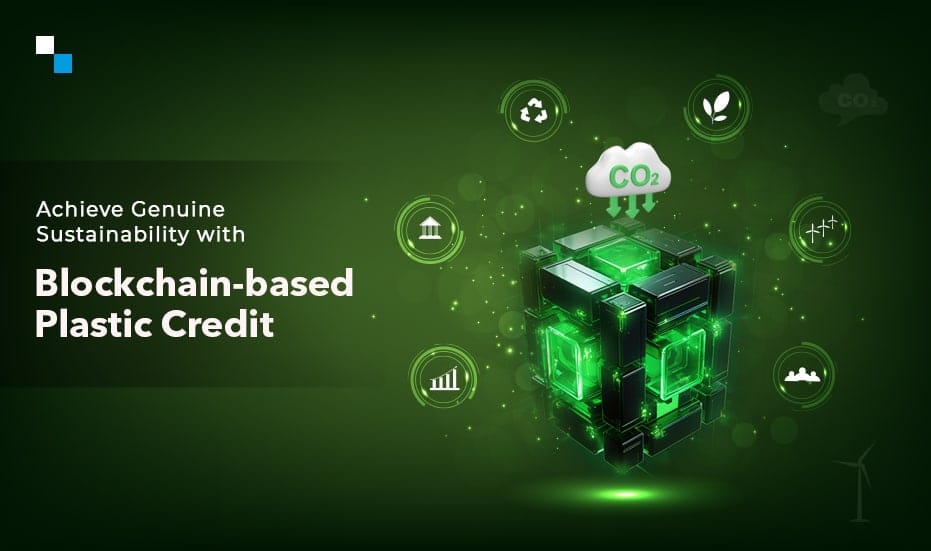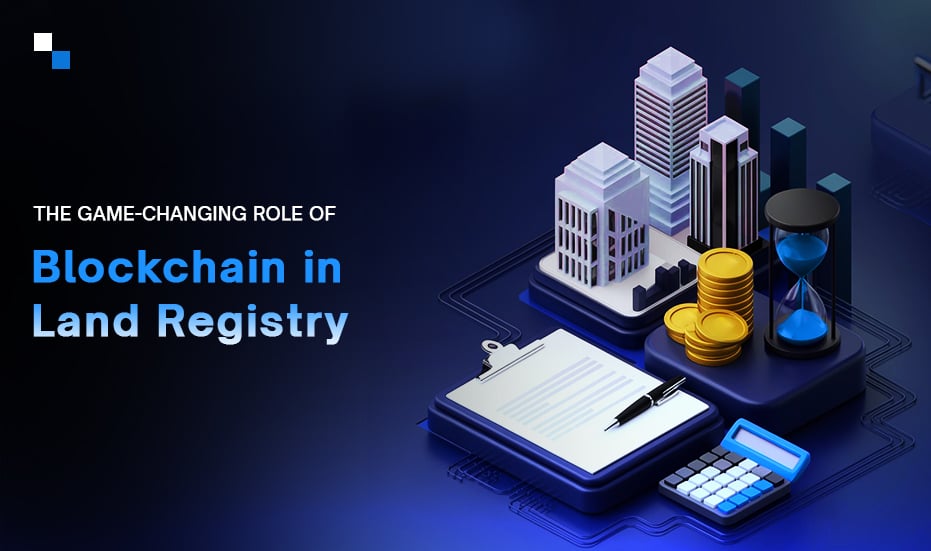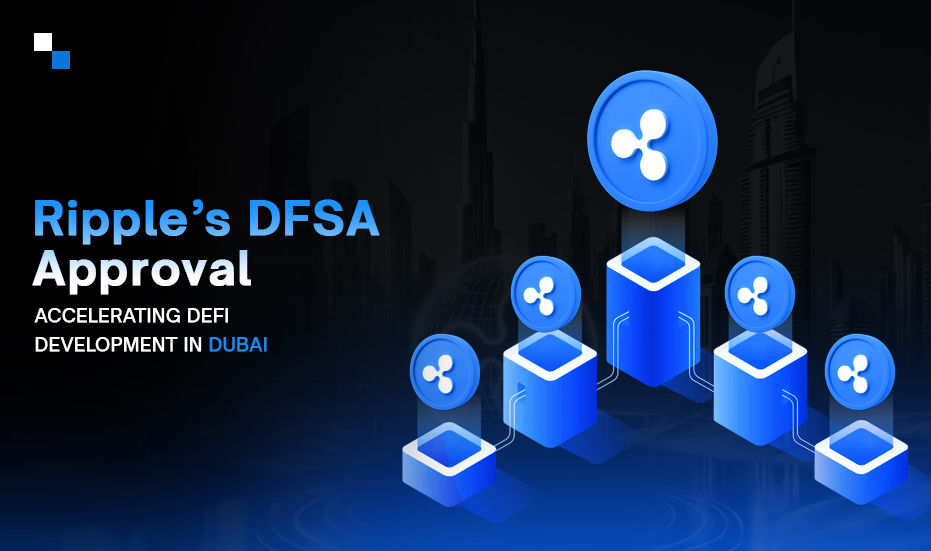
Why Should You Prioritize Using Blockchain for Sustainable Supply Chain?
November 8, 2023
Top 5 Crypto Flash Loan Arbitrage Bot Development Companies
November 8, 2023Today, plastic waste has become a significant issue, having detrimental effects on the environment as well as public health. For years, companies around the world have been putting efforts to offset their GHG emissions with carbon credit development. Besides offsetting carbon emissions, companies seek a better approach to combat the plastic pollution problem, and plastic credit is one of them.
Although plastic credit has emerged as an effective concept to deal with this plastic pollution, the greenwashing issue can’t be easily ignored, raising the need for a better solution. In this blog, we will emphasize the plastic credits, the greenwashing problem, and the unique solution to deal with it.
The Mounting Crisis of Plastic Waste
The latest stat shows that 12.7 million tons of plastic enter our marine environment every year, highlighting how serious the threat of plastic pollution is. Even after this excessive plastic waste, plastic production is still on the rise and will be expected to grow in the coming years.
“According to Global Plastic Market Report 2023, the global plastic market size is expected to reach USD 824.46 billion by 2030., growing at a CAGR of 3.98% from 2023 to 2030.”
Plastic wastes are not only choking our oceans but also polluting the soil, harming marine life and human health to a great extent. This is why the UN calls it a ‘planetary crisis.’ People around the world might be reducing their plastic usage at an individual level, however, there is a need for a more efficient effort to combat this problem at a global level. Plastic credit is one of the concepts gaining traction and considered an ideal approach to reduce plastic waste by creating a market for it.
Plastic Credit- An Innovative Approach for Sustainability
A plastic credit represents a transferable certificate that represents the recycling or collection of one ton of plastic waste. It is a paradigm shift that integrates well with the company’s operational ecosystem and can be implemented at a scale. The idea behind plastic credit development is to create a financial incentive for companies to reduce their plastic use and adopt more sustainable alternatives.
How are Plastic Credits Generated?
Plastic credits are created by collecting & recycling plastic waste. Projects working with credit issuing authorities collect this waste and use efficient methods to recycle or reprocess the plastic. These projects count plastic waste that they hadn’t collected, or processed and become the pollution in the environment. For each amount of plastic they recycled or collected, a certified plastic credit is issued that encourages responsible plastic waste management.
Who Buys Plastic Credits?
It can be purchased by organizations and other users who wish to take action against their plastic footprint. These plastic credits can easily be purchased from verified issuing authorities. Several companies and entities worldwide are investing in this powerful approach to finance the fight against plastic pollution.
Greenwashing: A Roadblock to Genuine Sustainability
While plastic credit is popular for the benefit of combating the plastic waste problem, it also faces the biggest problem – GREENWASHING.
Measuring the reduction or recycling of plastic waste accurately is difficult within the existing plastic credit system. This limitation in the system fuels the concern that businesses can claim themselves to be ‘plastic neutral’ without representing a genuine reduction in plastic waste. This problem is called greenwashing.
Greenwashing is driven by various challenges in the plastic credit system.
Some of them we have listed below-
- Lack of Standardization: It becomes easier for organizations to make false claims about their environmental efforts when the standards for issuance, tracking, and verification of plastic credits are vague. The lack of standardizations creates confusion and results in greenwashing.
- Incomplete Verification: The lack of rigorous verification and auditing processes in the plastic credit programs allows organizations to purport to be one of the contributors to plastic waste reduction.
- Lack of Transparency: There is no transparency in the traditional plastic credit system, which makes it difficult to trace the entire product lifecycle. This opacity in plastic credits makes a way for greenwashing opportunities.
- Complexity of Plastic Recycling: Plastic recycling and management is a complex process. Not all companies have expertise in implementing responsible practices. This leads many organizations to not put genuine efforts into plastic waste reduction and engage in greenwashing.
- Data Accuracy: The complexity involved in plastic credit data verification is difficult, especially when it comes to small organizations as they lack the dedicated resources for data collection and validation. It results in data inaccuracy, misreporting, and greenwashing.
To all the problems mentioned above, Blockchain is the solution. Blockchain-based plastic credit has the potential to address the greenwashing problem.

How Blockchain-based Plastic Credit Helps Resolve the Greenwashing Problem?
The following points highlight the importance of a Blockchain-based plastic credit system-
- Transparent and Immutable Records
Blockchain is a transparent & immutable ledger that records all transactions. All the information related to the creation, transfer, and redemption of plastic credits is recorded on the Blockchain. The transparency and immutability feature of Blockchain makes it challenging for unauthorized users or organizations to manipulate or hide their actions.
- Smart Contracts
Smart contacts can be used to automate the issuance and redemption of plastic credits based on specific environmental actions. It reduces the risk of representing false claims about their contribution to plastic waste reduction as actions are automatically validated before credits are issued.
- Decentralized Data Verification
The data related to emission reduction, collected and recycled plastic waste, and other environmental actions can easily be verified by the multiple parties in the Blockchain network. It makes it challenging for organizations to manipulate the system.
- Real-Time Monitoring
Blockchain plastic credit also helps monitor the impact of environmental actions. Hence, organizations cannot make false or exaggerated claims for their contribution as Blockchain provides you with actual evidence of their efforts. Choosing Blockchain plastic credit to reduce greenwashing is undoubtedly a strategic move.
- Reduced Administrative Costs
Smart contracts on Blockchain automate many verification and record-keeping processes that reduce administrative costs and make Blockchain plastic credit a cost-effective approach for organizations to participate in.
- Trust in the System
The decentralized and transparent nature of Blockchain fosters trust among participants involved in the plastic credit. As the data recorded on the Blockchain is immutable, stakeholders can be confident that the data is accurate and secure, reducing the risk of greenwashing.
Conclusion
Although the plastic credit system is an innovative approach to fight against the problem of greenwashing, this system also faces major challenges. Blockchain-based plastic credit system enables businesses not only to eliminate the challenges, but it serves as a valuable tool to create a transparent and accountable ecosystem for plastic credit.
Antier always supports the businesses and individuals who strive to contribute to the global movement of plastic reduction. Therefore, we offer the best plastic credit development services to mitigate the plastic waste and major challenges of greenwashing. With our support, businesses will be able to achieve their environmental goals. Connect with us to learn more about our services.



